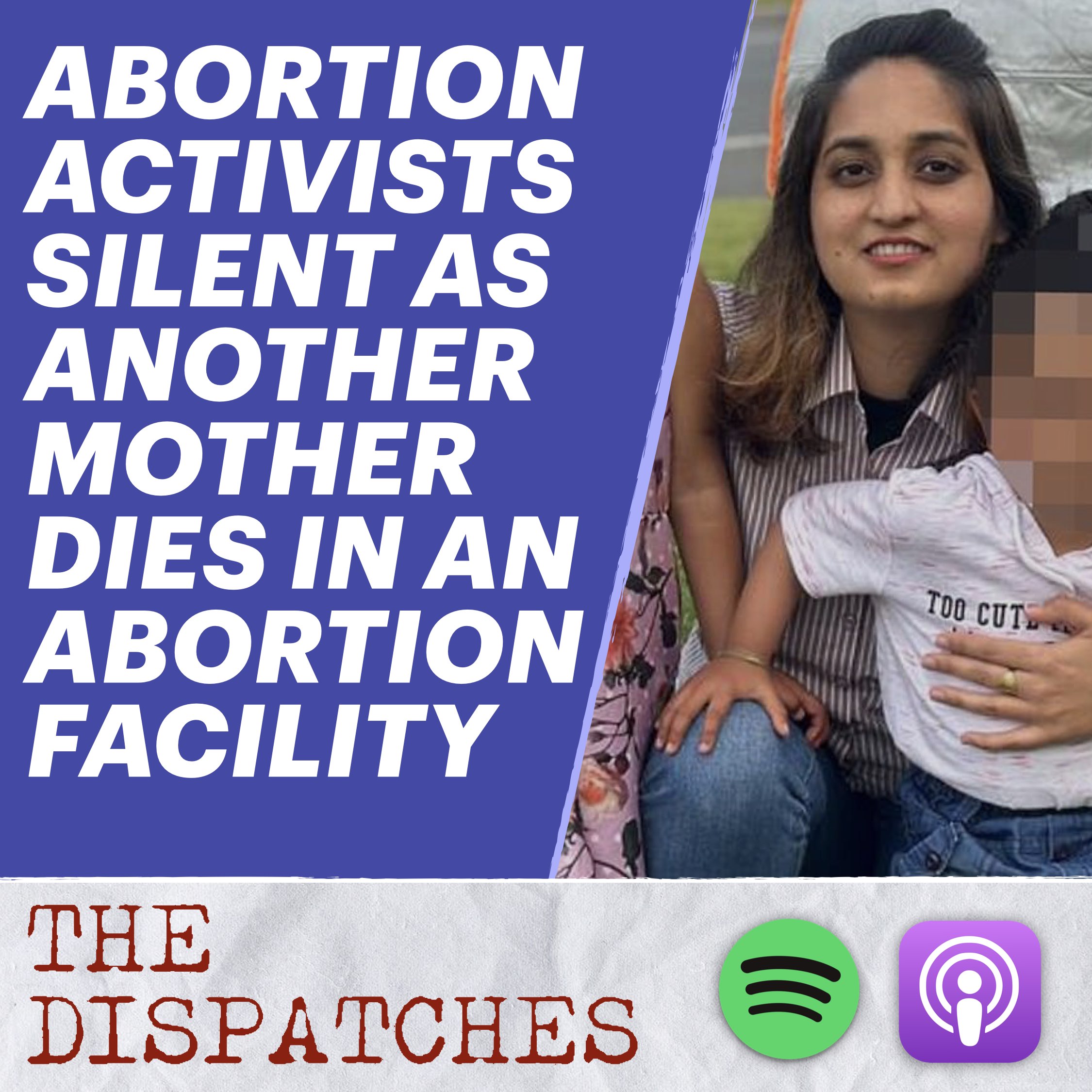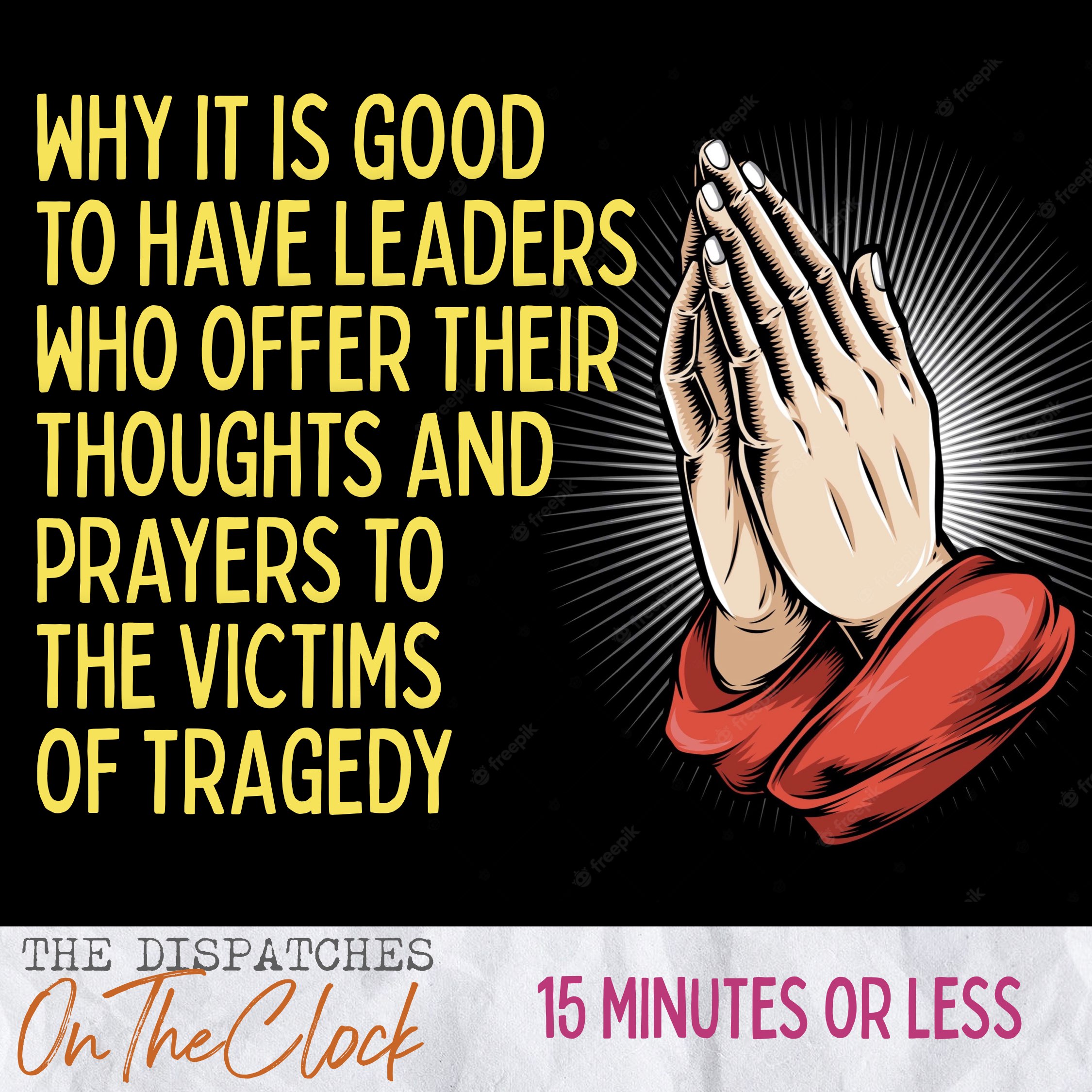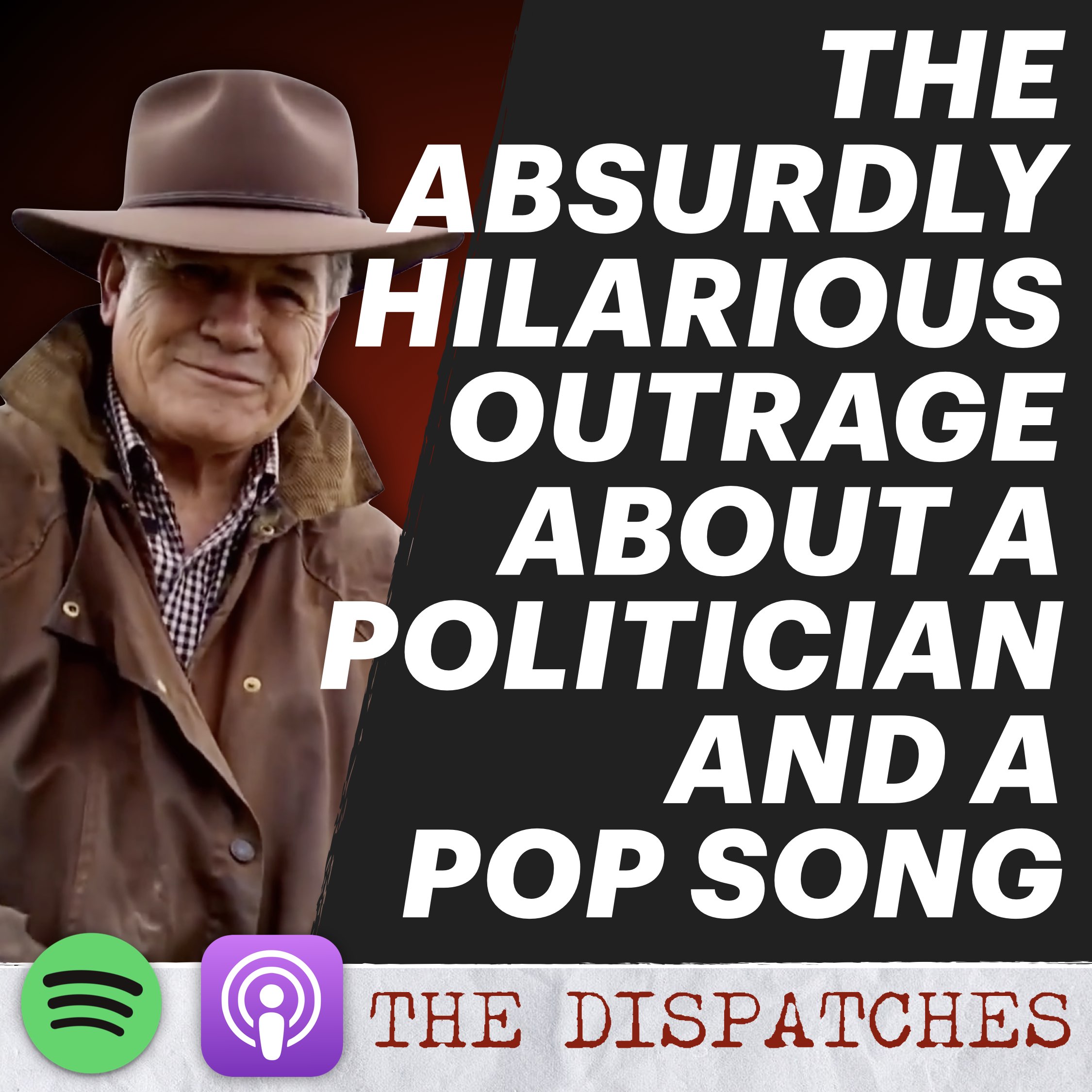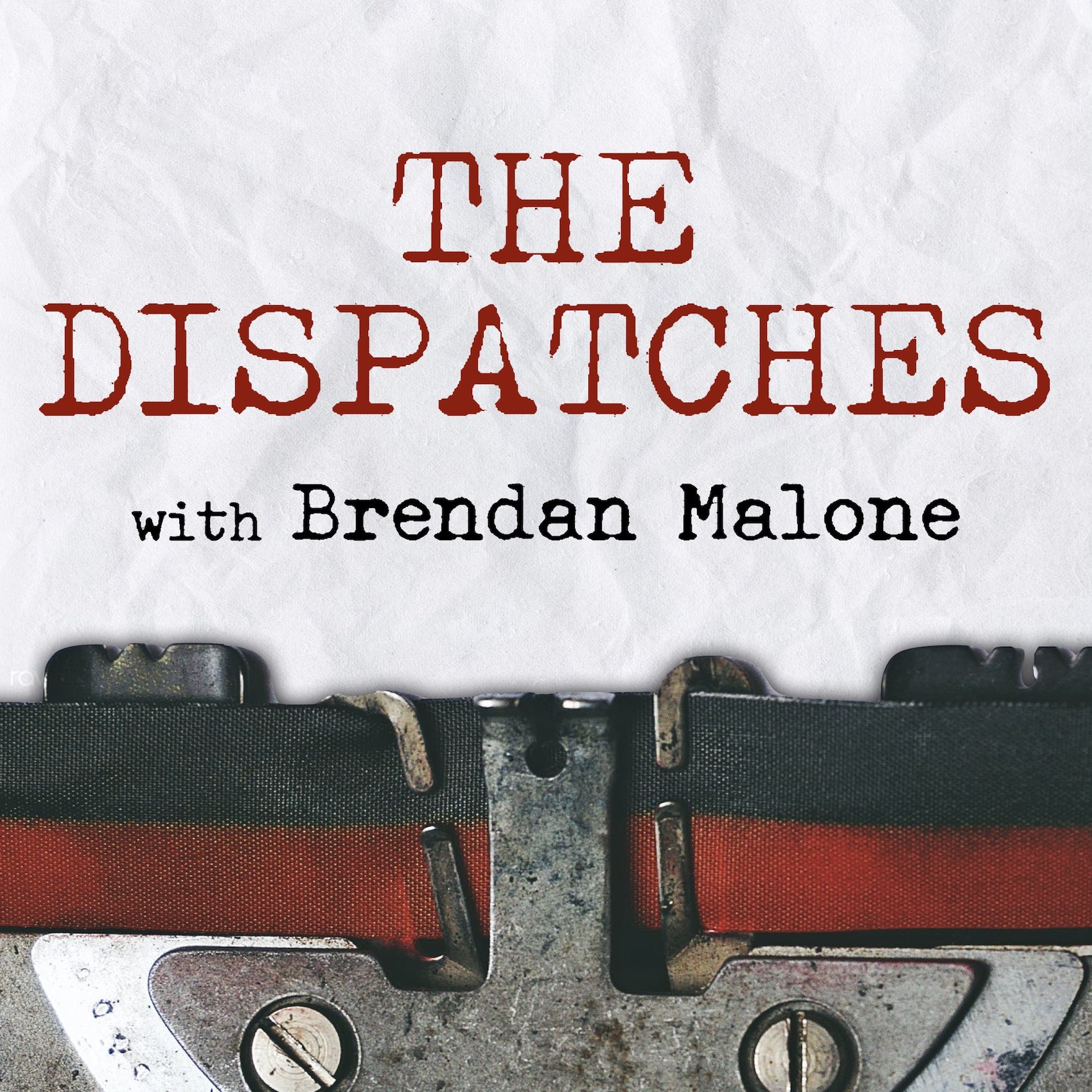[00:00:00] Hi, everybody, it's Brendan here. As you are aware, every single Friday on this channel, we publish a free to air episode of the Dispatchers podcast. This week I thought it was important to actually publish a second free to air episode today on Wednesday because of the story that I want to talk about. This is a vitally important story. It has received very little in the way of media coverage and raises some serious and important questions. So, without any further ado, let's start the episode.
[00:00:35] Hi, my name is Brendan Malone, and you're listening to the dispatchers, the podcast that strives to cut through all the noise in order to challenge the popular narratives of the day with some good old fashioned contrarian thinking. You might not always agree, but at least you'll be taking a deeper look at the world around you.
[00:00:53] Hi, everybody. Welcome along to the Wednesday edition of the Patrons only episode of the Dispatchers podcast. It is great to be back with you again. My name is Brendan Malone, and today we have a bit of a tragic story to talk about, and that is the death of Hajit Kohr, who is a young mother who was in her 30s, who died earlier this year in a Melbourne abortion clinic. And I want to talk about the story, the details of the story, and also the very stark and very noticeable difference in the way the media have almost barely even battered an eyelid about this particular incident.
[00:01:33] So Hajjat and her husband have two children, and they conceive a third child, and they believe that they cannot have the third child because Hajjit has just landed herself a job at Nike, the shoe manufacturer. In it, they are financially preparing to buy a new house, and so they seek out an abortion. I think for me, this is one of the really tragic moments in this whole story. And that is the fact that they believed that this was the way to resolve the fears and the worries and the concerns they had about finances.
[00:02:24] It's an absolute tragedy that any couple would think that ending the life of one of their own children is a path to future happiness or success.
[00:02:37] And it also speaks to something extremely dysfunctional at the heart of our culture. The fact that we have normalized this kind of destructive behavior within the bounds of our own families, and it is actually considered normal. And no one bats an eyelid. No one considers it to be anything in the realms of abnormality. To do this to our own children for the sake of financial gain. As someone once said, an abortion doesn't make you unpregnant. It now makes you the mother and father, the brother and the sister of a dead child.
[00:03:24] So they decided that they would have this abortion. So the abortion was scheduled for Friday, the twelveth of January this year, and about 01:00 p.m.
[00:03:36] Hajit messages her husband and she tells him that she's about to go into the surgical theater to have the abortion and that she would get in touch with him again afterwards. About an hour or so later, the abortionist, a guy by the name of Rudolph Rudy Lopes, called Hajit's husband and says to him, look, the abortion has been completed.
[00:04:04] But when they moved your wife into the general ward, her heartbeat stopped and there was now an ambulance there giving her CPR.
[00:04:13] Her husband immediately races down into the hospital to try and see his wife, but he's denied access to the general ward. And then a few minutes later a doctor comes out and tells him, look, sorry, your wife is dead. Now there's an investigation that has been launched, currently being carried out involving the victorian police and the victorian coroner to try and determine the cause of Hajit's death.
[00:04:41] And the reporting in the media indicates that the abortionist has voluntarily stood himself down in the meantime awaiting the results of this particular investigation. It's not clear whether their actions led up to her death, as in whether they did something specific that directly caused her death that they shouldn't have been doing according to the procedures of these things. But regardless of that fact, it is almost certain that barring some sort of truly bizarre medical incident that was going to happen on that day, at that time, regardless of where she was, it seems almost certain that we can say with confidence that if this abortion had not taken place, she would not be dead, her family would not be left with a dead unborn child and a dead mother, an even far worse situation than any possible stress associated with finances. And there are also some other very concerning questions that are raised by this particular incident and voice for Life New Zealand. On their website they have a comprehensive article about the incident. That particular article makes reference to this important point. Why exactly were they performing a surgical abortion in the first place? Because the way the article is written is actually quite deceptive. The media coverage of this, not the voice for life one, the other media coverage about this because it talks about her discovering that she was pregnant in January and then deciding to have an abortion. And it sounds like the situation of someone who has literally discovered they are pregnant and then makes a very quick decision to have an abortion. But in actual fact, they wouldn't be using a surgical abortion to end the life of this unborn child.
[00:06:49] If this was an early abortion. They would usually use a chemical abortion, commonly known as a medical abortion, where they utilize a two stage pill to chemically end the life of the unborn child.
[00:07:06] And a surgical abortion is normally something that would only be used after 14 weeks and beyond. And they do that due to the high failure rate of chemical abortions after about 14 weeks. They aren't a particularly successful way of ending the life of an unborn child after that point. So surgical abortions are used. And so the question that is raised in this voice for life article, and rightly so, is, was this a late term abortion of some kind? So the article is very cagey. It doesn't clarify how old the unborn child was. One thing we do know from some of the media coverage is that hajit had a consultation with the nurse and was told that a chemical abortion would cause heavy bleeding and pain, which could last for 30 days, and that there was no guarantee it would work. And in that case, a surgical abortion would then be required. So this clearly points to the fact that this is an abortion that is happening after at least after 14 weeks and possibly even later. The other troubling possibility here is that there was some form of upselling going on, as voice for life points out, to try and make money from this particular abortion. It's not clear who was actually paying for the abortion, whether Hajit and her husband were paying for a private abortion, or whether this was one of those situations where I think they call it copay in Australia, don't they, where you pay a fee and then the government picks up the rest of the tab. But either way, was there some form of upselling going on here? So you pay more for a surgical abortion than you would for a chemical abortion. So was this a case of the abortion clinic? And we've had reports out of places like the United States about the abortion industry doing this wherever they can, wherever there's money to be made, trying to, quote unquote, upsell people. But whatever the case, there are some confusing and troubling aspects to this story that actually could point to something even more concerning that's gone on here. But the media coverage is kind of vague about all of this. The one thing that seems pretty clear is we're not going to know for many, many months or possibly even a year or two by the time they complete a coroner's investigation. So I don't think the police will release their findings independent of the coroner. The coroner would be working with the police unless there was some sort of criminal activity that's gone on here, then the police may well make arrests and charge someone.
[00:09:52] But barring that, it's likely that we're still not going to find out for many months, probably even years, exactly the details of what has gone on here. And the reality is that by that time, the death of hajit and her unborn child is probably likely to have slipped from public attention, effectively burying yet another case of serious harm at an abortion facility, and in this case at a Melbourne abortion facility. Because there is a history of this kind of stuff happening in victorian abortion facilities. This is not the first time this has happened. It's not the first time that a mother has died during an abortion. In Melbourne in 2011, a 42 year old mother died after undergoing an abortion at the Murray Stops International Marindar abortion facility, which was formerly known as the Croydon Day surgery in Melbourne. And that place had a real checkered, or has a real checkered history.
[00:10:52] This is the same place that was officially investigated on four other occasions prior to that 2011 death.
[00:11:06] A couple of years after that death, James Latham Peters, who was an anesthetist who worked in that abortion facility, was jailed for 14 years and he tried to appeal his sentence, but the court said no to his appeal and he was sentenced and jailed to 14 years after he was found guilty of deliberately infecting 50 women with hepatitis C when he worked there in 2008, 2009. So over a two year period, roughly two year period, he infected 50 women with hepatitis C. He tried to downplay his offending, by the way, in the courts, he was like, well, hepatitis C, his lawyers argued, is not really that serious a disease. It's just unbelievable. In 2009, that same abortion facility, the owner, Dr. Mark Schulberg, was found guilty of professional misconduct for allowing a late term abortion to be performed on an intellectually disabled woman without legal consent.
[00:12:15] It took another four years before he was finally struck off the Australian Medical Register for inappropriately prescribing, and this is a completely different incident, inappropriately prescribing patients with addictive drugs for nearly ten years. And what was really astounding about this and voiceful life, point this out in their article, is that reporting about this particular incident from at least one mainstream media outlet in Australia begins by lamenting the fact that Schellberg has been deregistered because they claim that this will be a loss for australian women and it will leave them, quote unquote, helpless if they want to find a late term abortionist to carry out a late term abortion on their unborn child.
[00:13:01] Unbelievable. That was the initial that's the opening sentences of this article about a doctor who has harmed his patients, his female patients, for nearly ten years, inappropriately prescribing addictive drugs to them.
[00:13:20] And their opening is, but won't someone think about the abortion? Well, more particularly, won't someone think about the late term abortions that we might not be able to have? This is unbelievable. What's even more astounding is that just recently he has been allowed to return to the practice of medicine, including the ability to carry out procedures. He's not allowed to carry out major surgeries, anything that would require a general anesthetic. But here is a doctor who did ten years of harm to his female patients prescribing addictive medications, who oversaw the abortion of an intellectually disabled person without consent, and he is still considered fit to practice medicine.
[00:14:08] What does that tell you about the supposed genuine commitment to women's health which lies at the heart of the abortion industry, and the endless pro abortion activism that we are subjected to now on an almost weekly, if not daily basis in the mainstream media? Which brings me, I guess, to the big point that I really want to make today. And that is the stark difference in the media coverage about this latest incident. So, like I said, this is not the first female to die in a Melbourne abortion facility. You think that would be newsworthy alone? This is not the first female to be harmed, seriously harmed, in a Melbourne abortion clinic. You think that would add to the impact of this reporting?
[00:15:01] But no, the coverage of this has been noticeably downplayed.
[00:15:08] You contrast this to a situation where you might have a country or a jurisdiction where they might have more restrictive abortion laws, and someone dies and the family or the establishment or activists start making the claim that if this pregnant mother had had an abortion, then she wouldn't have died. Think about the way those stories are covered, and they get global wall to wall coverage and they deify the mother who has died.
[00:15:43] They do these big exposes about her life and about the great injustice of what has been done to her, et cetera, et cetera, et cetera. But when a woman is killed in an abortion clinic, there is a brief media coverage of this incident. And as far as I'm aware, it didn't really get beyond one or two articles in the mainstream media in Australia.
[00:16:13] You've obviously got people who picked it up, like organizations like Voice for Life have covered it, and I've seen people reference it one or two, but not many on Twitter.
[00:16:23] But other than that, this has received very little attention. Why? Because the death of a woman in an abortion clinic does not suit the narrative, the pro abortion narrative that is driven and maintained by our media. And please don't doubt this for a second. Back in 2008, Victoria introduced what was at the time, one of the most extreme abortion laws in the world. It was usurped when New Zealand in 2020 introduced Jacinda Ardern's pet project, the Abortion Legislation Act 2020, which was even more extreme. But after that 2008 abortion law change in Victoria, Australia, a group of activists and lobbyists traveled over to Melbourne and interviewed various people, and they wrote a document called a pathway to abortion. And that document was specifically targeting New Zealand. It was New Zealand activists who went over there to do this, and it laid out the pathway for how an extreme abortion law could be introduced here in New Zealand. Now, what they did was, for some unknown reason, they made a mistake when they came back of posting this document online.
[00:17:52] But they didn't put it behind any sort of password protection. It was quite publicly available, and it was discovered by a pro life person that I know accidentally while they were doing research. And, all right, they might have been alerted to it, actually by someone they know who was involved in or had connections to one of these groups. And so they downloaded it and documents were distributed to various people within the pro life movement. And it was literally, as the name suggests, a roadmap. It was a guide to what steps would need to be taken to actually implement to come to their final goal of introducing an extreme abortion law in New Zealand, which was what Jacinda Ardern did. It was her pet project. She championed it in the lead up to the last election. And then it was one of the few promises that she actually delivered on. Think about the irony of that. She took on the role, right, of Minister for child welfare, but the only promise she really delivered on in any meaningful way was one that actually increased the number and the ease with which you could deliberately end the life of your child before they are born.
[00:19:07] There's a certain perversity in all of that.
[00:19:10] The point that I was trying to get to, though, about that particular document is that it lays out very clearly this strategy for how the media should be handled. And they talk about the importance of gaining favorable media coverage, but even more so, getting people into key roles in reporting in the media so that they can have the coverage and the narrative swung the way that they want it to. They can propagandize the people. And that is exactly what happened. And we saw that in the lead up to the Abortion Legislation Act 2020. I was very involved in that particular fight. And I can tell you for a fact that there was so much propagandizing going on, and there was some real blatant dishonesty, and it was exceedingly clear that there was a narrative that was deliberately being shaped. There was propaganda. There's no other way to describe it, and at times, very dishonest propaganda, too. And when you're a propagandist and you're in the business of propagandizing abortion, and you, if not someone who's directly involved in that, working for the media, but you have this mistaken belief that abortion is this great, liberating good that must be protected at all costs, then you are going to downplay an incident like this, because this does not make abortion look good. It does not make the abortion industry look good. It does not make abortion look like a particularly pro woman liberation. It actually looks like a very dangerous pathway to tread.
[00:20:53] And you don't even want people thinking that is a possibility about abortion. So you don't cover the story, you don't give it wall to wall coverage, especially not in light of what's gone on in the United States just a couple of years ago with the overturning of Roe v. Wade. And we're now back into full propaganda mode when it comes to the issue of abortion. It's yet another tragic and ugly incident highlighting the nature of what is really going on here and why it is so fundamentally important that we should not ever go silent about this issue.
[00:21:35] And that means that we've got to have the courage, I think, first and foremost, to really live an authentic culture of life in our own lives. It's no good talking about it publicly and decrying the ugliness and the violence and the barbarism of abortion if we're not living an authentic culture of life in our own life. So first we must live that, and then we must also speak up, as the great christian theologian and minister killed by the Nazis. Dietrich Bonhoeffer once said, open your mouth for the one who is voiceless, who in the church today still remembers that? That is the least of the Bible's demands in times such as these. That's not necessarily in any great and regular, ongoing acts of public protest. It is simply a matter of constantly praying about this issue, putting it before people, speaking about having conversations, making people aware. Be a voice for those who are voiceless. Be a voice for those who cannot speak up for themselves. Be a countercultural voice of goodness, truth, and beauty in a culture that has embraced violence at its very heart. And you'd have to say the worst kind of violence on multiple levels, the deliberate and intentional killing of our own children, the destruction of our future.
[00:23:14] You heard in yesterday's edition I mentioned the brand new data that's come out showing that New Zealand's population grew the lowest it has ever grown naturally in over 80 years since 1943.
[00:23:30] Our population, our fertility rate is now 1.56. It's well below replacement. It's been dropping for several years consistently.
[00:23:41] We have now, as of last year, aborted 600,000 of our own citizens since the late 1970s.
[00:23:56] We are destroying our own future here.
[00:24:01] We need to call our people to attention, to take notice, to listen to, to consider exactly what is going on here. Because if we don't, then those who are the peddlers of the culture of death, the architects and the agents of this destructive, barbaric and vile immorality, they win simply by our silence.
[00:24:39] Thank you for listening. Don't forget, live by goodness, truth and beauty, not by lies. And I will see you tomorrow on the dispatchers.
[00:24:52] The Dispatchers podcast is a production of left foot media. If you enjoyed this show, then please help us to ensure that more of this great content keeps getting made by becoming a patron of our
[email protected].
[00:25:05] Left foot media link in the show notes thanks for listening. See you next time on the dispatches.






